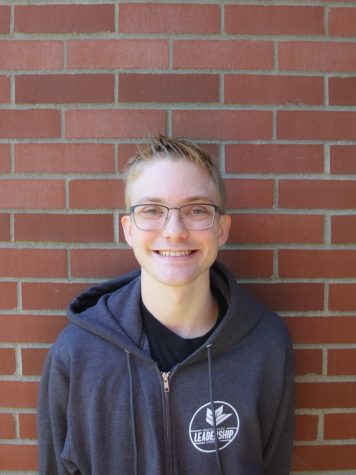Attracting athletes virtually
Falcon coaches prepare to recruit earlier, through video due to COVID-19 pandemic
June 3, 2020
In many ways, the world of college athletics is a revolving door.
As opposed to professional athletics, where a member of a team can stay as long as they want, athletes in college are gone after receiving a degree. The door of college athletics spins as an athlete is recruited and commits to a school, then goes through their years with the team and then leaves as quickly as they came.
Most of the time, the door keeps spinning steadily, but the reality of the COVID-19 pandemic has forced the door to spin slower.
During the months of April and May, the NCAA instituted a recruiting “dead period,” making it against the rules for coaches and recruits to meet in person, following the standards of the rest of the nation.
“During a dead period, a college coach may not have face-to-face contact with college-bound student-athletes or their parents, and may not watch student-athletes compete or visit their high schools,” the NCAA website states.
During this time, coaches were still allowed to write or speak to their recruits on the telephone.
It is easy to think that university would be landing recruits left and right at this time, as both sides would have more time to talk to one another. But according to track and field associate head coach Chris Reed, this simply has not been the case so far.
While the dead period is necessary for the safety of all involved, it still makes getting athletes to commit to being a Falcon more difficult.
Reed said that the program has received a few commitments since the dead period began, but that these successes do not negate the challenges of the situation.
Some Falcon teams have leaned into their team community during their offseason. The women’s soccer team has stayed close by putting in lots of work physically during the winter, and continuing to do so separately in the spring, preparing for the season ahead.
Joining the current members of the women’s soccer team will be eight incoming freshmen and one transfer, according to head coach Arby Busey.
“We were very active prior to things shutting down, and have seen most all of the players we wanted quite a few times,” Busey wrote in an email.
Busey and his team are set for the upcoming season, but recruiting almost solely from video will be more difficult in the coming years, if the pandemic continues to prevent teams and recruits from meeting in person.
“Soccer can be even more of a challenge on video as the field is so big, and players are so spread out, that sometimes what you want/need to see is happening outside what the camera can pick up,” Busey wrote.
Women’s basketball head coach Mike Simonson and his assistant coaches were also able to do most of their recruiting before the pandemic, bringing in a class of six new players. Simonson said the team focused on getting more athletic before next season, bringing in players that are taller and quicker.
“Almost every player we’re going to bring in next season is above average in height for their position,” Simonson said in a phone interview.
But Simonson also referenced that things will change on the recruiting front in the future. Since club teams are no longer playing basketball in the summer, juniors in high school are now faced with many unknowns and may commit to a school earlier than they would have normally.
“We’d normally be talking to a kid in August or September, here we are in April or May talking to them,” Simonson said.
Gymnastics head coach Sarah Jean Marshall is also feeling the struggle of this time. Gymnastics recruits are unable to record videos of them training in the gym, which is a large part of the recruiting process.
“I try to remind them that we are all in this together and they can’t change the situation, but they can use the time to get stronger physically and mentally — to heal their bodies and sharpen their minds, so that when they can train again they will be ready to get back to the grind,” Marshall said in an email.
Luckily, the recruiting process of Marshall largely begins in an athletes’ junior year of high school, as the recruits reach out to the coaches by email or by filling out an online questionnaire. This allows the team to pull recruits from all over the United States and Canada. The Falcons have already landed four recruits for the next season in spite of the challenges.
It is also more difficult to get an athlete to fully commit to a school when they cannot visit it.
As of June 1, Division II schools in the NCAA have opened up a quiet period of recruiting, allowing coaches and recruits to meet on campus, but nowhere else. Due to the pandemic, this task is still more difficult than normal.
Reed said that the athletes are not able to see the relationships they are going to make and the education that they are going to receive during this difficult time.
“There is not a way to properly illustrate the essence of that via remote channels,” Reed said in an email.


























































































